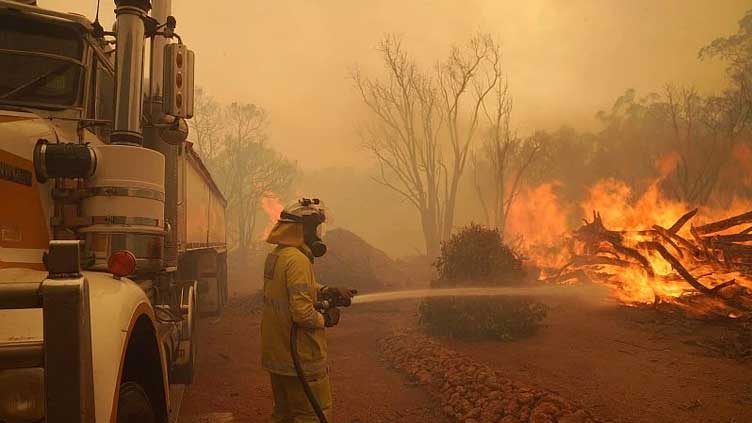Australia swelters through heat wave as firefighters battle bushfires

World
In New South Wales more than 50 fires were burning on Saturday
SYDNEY (Reuters) - Large parts of Australia on Saturday sweltered under heat wave conditions that prompted the nation's weather forecaster to issue bush fire warnings in several states.
In New South Wales, Australia's most populous state, more than 50 fires were burning on Saturday and a total fire ban was in place for many areas, including Sydney, the state's rural fire service said.
The agency said on social media platform X that more than 700 firefighters and incident management personnel were working statewide to fight blazes amid "widespread high and extreme fire danger".
Heat wave alerts and fire warnings were also in place for parts of Western Australia and the Northern Territory, while in South Australia heat wave conditions were forecast but no fire warning was issued, according to the Bureau of Meteorology.
The hot weather lifts the risk of bush fires in an already high-risk fire season amid an El Nino weather event, which is typically associated with extreme events such as wildfires, cyclones and droughts.
In the town of Fitzroy Crossing, in remote Western Australia, a maximum temperature of 46 degrees Celsius (114.8 degrees Fahrenheit) was forecast on Saturday, more than five degrees above the average December maximum, according to forecaster data. It was 38.8C (101.8 F) there at 11 a.m. local time.
Authorities have warned of a high-risk bush fire season this Australian summer after a quiet two seasons compared with the 2019-2020 "Black Summer" fires that destroyed an area the size of Turkey and killed 33 people.
Meanwhile in Queensland, ex-Tropical Cyclone Jasper, which tore through the state's northeast this week, was forecast to bring more heavy rain and possible flooding in areas near the tourist town of Cairns.
"More wet weather is on the cards," Bureau of Meteorology spokesperson Angus Hines said in an update.


